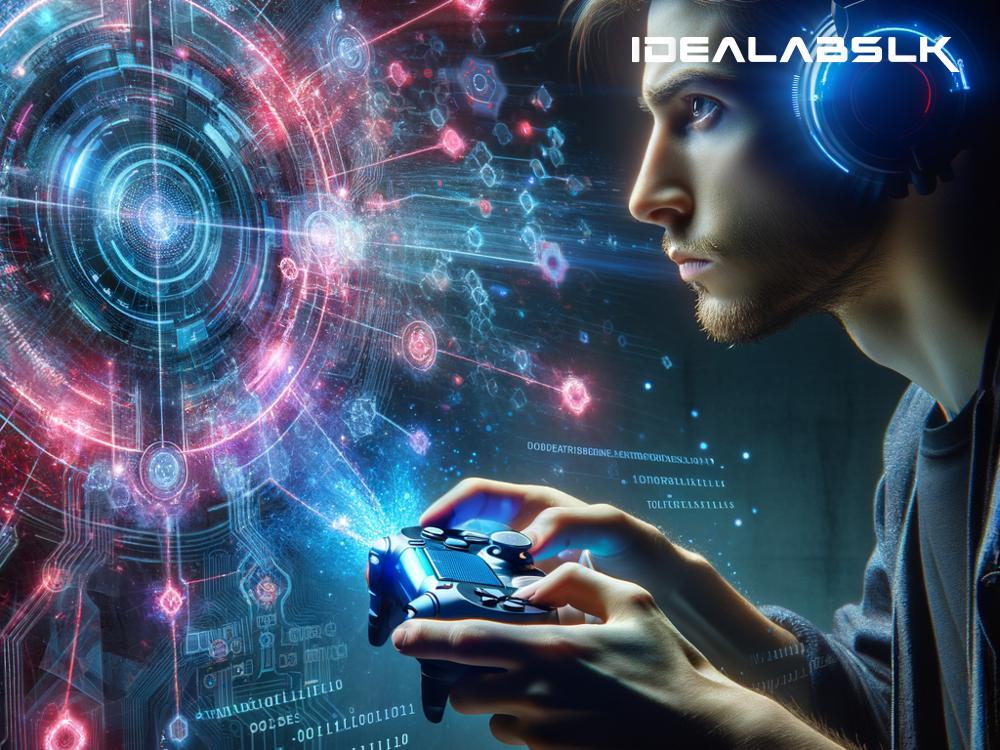Unlocking the Speed: How AI Revolutionizes Gaming Through Controller Latency Reduction
In the ever-evolving world of video games, where action-packed adventures and split-second decisions can define the line between virtual glory and defeat, every gamer understands the critical value of responsiveness. The lag, or delay, between pressing a button on your controller and witnessing the action unfold on-screen is referred to as latency. And if you've ever missed that crucial jump or been a tad too slow on the draw, you've felt the sting of high latency. Fortunately, we’re living in an era where artificial intelligence (AI) is stepping onto the scene to revolutionize gaming by tackling this very issue. Let’s dive into the fascinating world of how AI is drastically reducing latency in video game controllers, making our gaming experiences smoother and more immersive.
The Problem at Hand: Latency and Its Effects
Imagine you're deeply immersed in an intense online shooter game. You spot an enemy and react by pressing the shoot button. However, instead of the instant response you expected, there's a slight delay. This brief moment can very well cost your character its virtual life. Latency can be a thorn in the side of many gamers, especially in genres that demand high precision and timing, such as fighting games, shooters, and rhythm games.
AI to the Rescue: The Smart Solution
Artificial Intelligence, commonly known as AI, is a branch of computer science that emphasizes the creation of intelligent machines that work and react like humans. In the context of game controllers, AI is being used to predict and optimize the communication between a player's action (like pressing a button) and the game's response. But how does this technology achieve such a feat?
The Mechanics of AI-Enhanced Controllers
AI-enhanced controllers rely on a combination of machine learning algorithms and predictive modeling. These techniques allow the system to learn and anticipate the player's next move based on historical data and play patterns. In simple terms, the controller starts to understand how you play. For example, if you’re playing a racing game and consistently press the acceleration button at certain turns, the AI can predict this action and prepare the system in advance, leading to a virtually instantaneous response when you finally press the button.
The Results: Smoother, Faster Gaming
The impact of AI on reducing latency is substantial. Players might find their in-game actions feeling almost telepathic in responsiveness. This improvement can lead to not only a more enjoyable and immersive gaming experience but also a fairer competitive environment. When every player has access to a system that minimizes latency, the playing field is leveled, and skill becomes the primary determinant of success, not the quality of one’s internet connection or hardware.
Examples and Innovations
Though still a developing technology, several gaming companies and accessory manufacturers have begun exploring AI-driven solutions for latency reduction. Innovations range from AI-optimized wireless communication protocols that ensure faster data transfer between the controller and the console, to sophisticated predictive algorithms that can almost perfectly forecast a player's next move. While specific product names and companies are at the frontier of this technology, the trend is clear: the future of gaming controllers is intelligent.
Moving Forward: The Future of AI in Gaming
The integration of AI in gaming controllers is just the tip of the iceberg. The technology's potential to enhance virtually every aspect of gaming, from AI-driven game development to personalized gaming experiences, hints at a future where games are more realistic, immersive, and tailored to each player. As AI continues to evolve, we can expect to see more innovations that not only reduce latency but also revolutionize the way we interact with video games.
The Bottom Line
The gaming industry's adoption of artificial intelligence to combat latency is a testament to the technology's transformative power. By making game controllers smarter, AI is not just enhancing our gaming experiences; it's redefining the boundaries of what's possible in virtual worlds. As we stand on the brink of this exciting frontier, it's clear that AI and gaming are embarking on an epic journey together, with the promise of delivering even more astonishing breakthroughs in the years to come.
In conclusion, while high latency once threatened to dampen our gaming spirits, AI has emerged as a superhero, ready to save the day. Through its innovative application in video game controllers, it ensures our virtual adventures are as seamless and thrilling as they deserve to be, proving once again that in the realm of technology, the only limit is our imagination.

